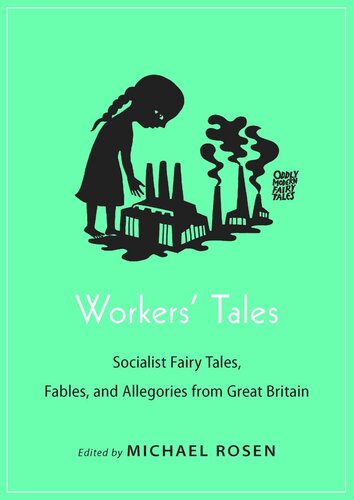

Most ebook files are in PDF format, so you can easily read them using various software such as Foxit Reader or directly on the Google Chrome browser.
Some ebook files are released by publishers in other formats such as .awz, .mobi, .epub, .fb2, etc. You may need to install specific software to read these formats on mobile/PC, such as Calibre.
Please read the tutorial at this link: https://ebookbell.com/faq
We offer FREE conversion to the popular formats you request; however, this may take some time. Therefore, right after payment, please email us, and we will try to provide the service as quickly as possible.
For some exceptional file formats or broken links (if any), please refrain from opening any disputes. Instead, email us first, and we will try to assist within a maximum of 6 hours.
EbookBell Team

4.7
56 reviewsA collection of political tales—first published in British workers’ magazines—selected and introduced by acclaimed critic and author Michael Rosen
In the late nineteenth and early twentieth centuries, unique tales inspired by traditional literary forms appeared frequently in socialist-leaning British periodicals, such as the Clarion, Labour Leader, and Social Democrat. Based on familiar genres—the fairy tale, fable, allegory, parable, and moral tale—and penned by a range of lesser-known and celebrated authors, including Schalom Asch, Charles Allen Clarke, Frederick James Gould, and William Morris, these stories were meant to entertain readers of all ages—and some challenged the conventional values promoted in children’s literature for the middle class. In Workers’ Tales, acclaimed critic and author Michael Rosen brings together more than forty of the best and most enduring examples of these stories in one beautiful volume.
Throughout, the tales in this collection exemplify themes and ideas related to work and the class system, sometimes in wish-fulfilling ways. In “Tom Hickathrift,” a little, poor person gets the better of a gigantic, wealthy one. In “The Man Without a Heart,” a man learns about the value of basic labor after testing out more privileged lives. And in “The Political Economist and the Flowers,” two contrasting gardeners highlight the cold heart of Darwinian competition. Rosen’s informative introduction describes how such tales advocated for contemporary progressive causes and countered the dominant celebration of Britain’s imperial values. The book includes archival illustrations, biographical notes about the writers, and details about the periodicals where the tales first appeared.
Provocative and enlightening, Workers’ Tales presents voices of resistance that are more relevant than ever before.